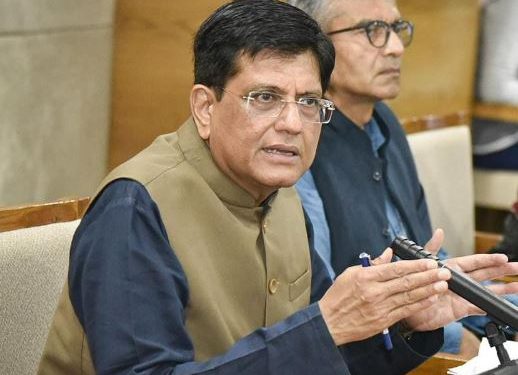New Delhi: India will strongly demand fast-tracking American health regulator’s USFDA inspections, or audit of domestic pharma firms, lifting export ban on wild-caught shrimp and flag the issue of export control regulations for high-tech products and technologies at the Trade Policy Forum (TPF) meet Friday, an official said.
The 14th TPF meet will be co-chaired by US Trade Representative Katherine Tai and Commerce and Industry Minister Piyush Goyal here.
The Indian side will also raise the issue of reinstating the Generalized System of Preferences (GSP) status to India, the official said.
United States Food and Drug Administration (USFDA) approval is required to sell medicines in the US market. Before giving the approval, the USFDA authorities visit premises of manufacturing units for checking quality standards.
The official said during the meeting, the Indian side will raise the issue of fast-tracking USFDA inspections/audit of Indian pharma manufacturing units through digital or physical means to reach pre-pandemic level.
America is India’s top export market for pharma products with current exports (April-February 2023) of $6.79 billion, which is almost 30 per cent of India’s global exports.
The exports to the US are growing at the rate of 6.7 per cent in the last five years.
Following the outbreak of the pandemic, USFDA had stopped conducting inspections and audits in India for a long period, and resumed later, which resulted in huge backlog, impacting product and unit approvals/renewal.
Further India will raise the issue of export control regulations for high-tech products and technologies as the country has expressed interest towards recognising it as a Trade Agreements Act (TAA) designated country by the US.
During his visit to the US in June last year, Prime Minister Narendra Modi has expressed India’s interest in this regard. After that visit, a formal discussion was initiated between the two countries on the matter.
The issue of export ban by the US on Indian wild-caught shrimp would also figure prominently in the TPF meeting, the official said.
The US has informed India that the US National Oceanic and Atmospheric Administration (NOAA) team has proposed to visit India next month to conduct a TED workshop (kind of learning programme) for the state fisheries departments, and scientific organisations and verify the efficiency of newly designed TED in the field.
India is a major shrimp exporter. It produces shrimps in controlled environments like in ponds, besides catching from the sea, which are called wild caught shrimps.
According to a marine exporter, the US feels that catching shrimps in the ocean impacts other species in the ocean, but Indian fishermen use fine-quality nets that do not harm other species like turtles.
On GSP, India on several platforms has asked the US to resume incentives under the programme to Indian exporters.
In April 2018, the USTR office initiated a review of India’s eligibility for GSP on the grounds that India had denied adequate access’ to its agricultural and dairy markets and had placed prohibitive price controls on medical devices.
India’s GSP benefits were terminated in June 2019. Exports under GSP tariff lines or products was $8.7 billion in 2018 (GSP benefits availed only on $6.3 billion), which increased to $9.4 billion in 2019.
The last TPF meeting was held in Washington in January 2023.
TPF is a platform to resolve trade and investment issues between the two countries. It has five focus groups — agriculture, investment, innovation, and creativity (intellectual property rights), services, and tariff and non-tariff barriers.
The US is the largest trading partner of India. America accounts for about 20 per cent of India’s total exports in goods and is a key market for services sectors like IT.
The bilateral trade between the countries has increased to $129.4 billion in 2022-23 from $120 billion in 2021-22. India received $6 billion in foreign direct investment from the US in 2022-23.
PTI







































